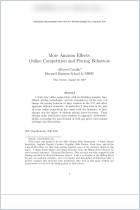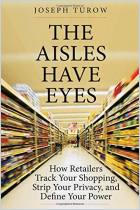
Read or listen offline
Amazon Kindle
автоматическое преобразование текста в аудио
1×
Войдите, чтобы прослушать аудиоверсию краткого изложения.
автоматическое преобразование текста в аудио
Recommendation
Imagine paying $5 for a cup of your favorite brew at your local café. Perhaps you’re satisfied with the price. But when you notice that the next customer orders the same drink but pays just $3, and the next hands over just $2, how do you feel? Scammed? Exploited? Wronged? In the online world, you constantly experience such price discrimination, though you’re likely unaware of it. Consumer watchdog Charlsie Agro deftly sheds light on the clandestine practice of price discrimination and advises online shoppers on how to seek and find the lowest prices and best deals.
Summary
About the Speaker
Charlsie Agro is a reporter for Marketplace, a consumer watchdog program on Canada’s CBC News.
Learners who read this summary also read
Article
Book
Report
Book

















Comment on this summary